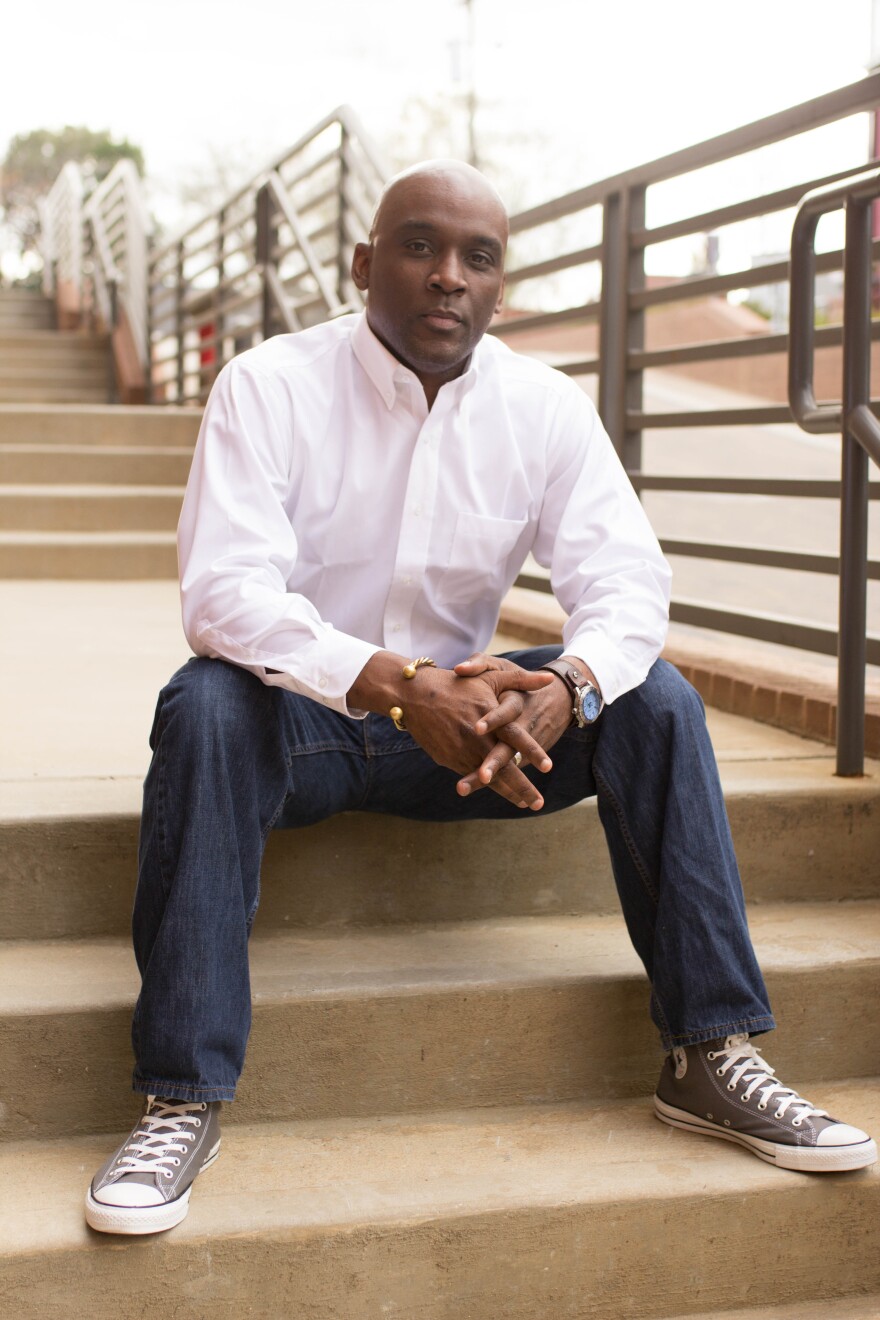Sometimes, a haircut isn’t just a haircut.
When he was growing up in Kansas City, author Derrick Barnes felt like a new kid after visiting his barber.
“Man, to get my haircut on Thursday means that when I showed up to school on Friday, I would look so fresh, and people would pay attention to me,” he told host Gina Kaufmann on KCUR’s Central Standard.
“I felt smarter and my girlfriend thought I was the most handsome boy in the entire school,” he added. “This was all in my head, but I just felt better about myself.”

Barnes commemorates this experience in his new children’s book, Crown: An Ode to the Fresh Cut.
A sketch of his friend’s teenage son after a haircut brought back memories for Barnes.
His mother worked a lot as a nurse, he said, and always left dinner for her kids. On Thursdays, she would also leave $8 on the coffee table for him to get a haircut. He was in 6th grade, and he rode the bus to Jessie’s at 59th and Prospect.
“My barber was Mr. Tony, and he’s still there today,” Barnes said.
Like many other black barbershops in America, men from different walks of life went to Jessie’s, he said. And as an 11-year-old, Barnes was a fly on the wall, hearing others talk about real-life issues.
“You learned how to communicate, how to debate back-and-forth with confidence, with swagger and with intelligence,” he said.
He also learned the exact definition of what it meant to be a man, he said: to have his own, to have employment and to have his own house.
“Sometimes in our community, you don’t get these things at home,” he said. “I didn’t have a father at home, so when I went to the barbershop and I was around all those black men, it was a great experience for me.
“I got my haircut a lot, twice a week. And a lot of times, I didn’t need a haircut. I just wanted to go to the shop,” he said.
Barnes is passing those lessons from Jessie’s on to his four sons, who range in age from 6 to 16.
His kids have also inspired his writing.
“I feel like my obligation as an African-American male, author, father and husband is to depict African-American children as human,” he said. From popular culture to the news, he feels like they haven’t been historically depicted in the most positive light, he said.
“I live with four beautiful human beings, and it’s my job to show their human side, to show how smart they are, how funny they are, how optimistic they are about their future,” he said. “And so I try to do that in every single book that I write.”

Barnes now lives in Charlotte, North Carolina, with his family. His 11-year-old son, Silas, is the model for the boy in the book, which was illustrated by Gordon C. James — an artist whom Barnes met while working at Hallmark as a copywriter.
To Barnes, the barbershop is a great setting for a children’s book.
He’s traveled a lot since his first books came out in 2008, he said. Most of the schools he visits are in an urban environment. While he’s there, he likes to get out into the community and go to restaurants, stores and barbershops.
“It doesn’t matter what city I’ve gone to, it’s the same setting,” he said. “You have people bringing their young boys into a barbershop. The conversation is all the same; we’re talking about politics, we’re talking about sports, we’re talking about women. You have boys there lined up, wanting to get that new fresh haircut. It’s the same feeling, you see the smiles on their faces.
“I think the black barbershop is the only place in America where black boys can go to get tended to, to get treated like royalty,” he said.
Jen Chen is associate producer for KCUR's Central Standard. Reach out to her at jen@kcur.org and follow her on Twitter @JenChenKC.


